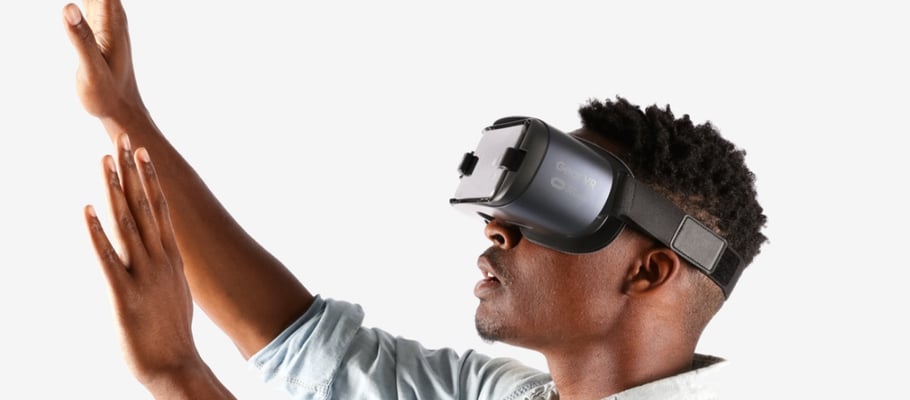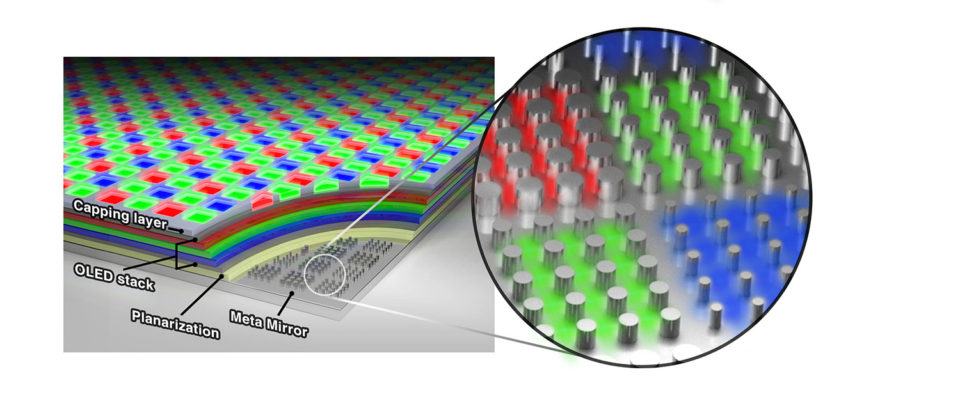
This was done by working on existing designs for electrodes of ultra-thin solar panels. Samsung and Stanford researchers were able to develop a new architecture for OLED displays that will enable devices like smartphones, TVs and VR/AR headsets to take advantage of ultra high-resolution.
Samsung already working on a full-size display
A display panel with 10,000 pixels per inch would be an incredible feat, unlike anything that we've experiened so far. Modern smartphones have yet to hit 1,000PPI, let alone 10,000. This tech will particularly be a gamechanger for virtual and augmented reality devices.
VR users often complain about the “screen door” effect. This is caused by the gaps in between the pixels that are easily visible when looking at a display that's just centimeters from your face. This newOLED tech relies on films on emit white light between the reflective layers.
There's one silver layer and another that's made from reflective metal and has nano-sized corrugations. This ends up changing the reflective properties and enables specific colors to resonate through pixels.
That's how such high pixel densities are achieved compared to the RGB OLEDs found in phones without significantly compromising brightness. This would effectively create an almost flawless image in VR devices where it would be impossible to distinguish individual pixels, thereby eliminating the screen door effect.
It's going to take some time before this tech can make it into consumer devices. Powering such a display would require quite a bit of computing power as well but it's all within the realm of possibility. Samsung has said that it's working on a full-size display that will use this technology and that it's indeed viable to manufacture the newOLED displays on a large screen. So it's only a matter of time before it revolutionizes the display industry once again.













